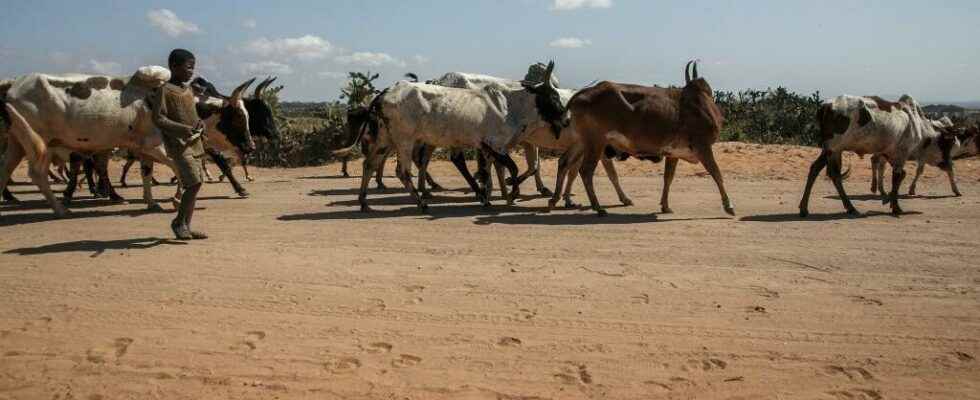In Madagascar, the photographer and documentary photographer Rijasolo was rewarded by the World Press Photo jury in the category ” Africa, long-term projects “. For the past ten years, this emblematic photographer from Madagascar has been recounting his island with striking accuracy.
With our correspondent in Antananarivo, Laetitia Bezain
Author of photographic accounts, photo-reporter for AFP, among others, Rijasolo has been exhibited throughout the world. On Thursday evening, the World Press Photo jury rewarded him for his series of photos entitled “The War of the Zebu”.
A black and white account of a phenomenon that has been going on for years in the South and West of Madagascar. Zebu theft, a tradition that has turned into trafficking in these poor and isolated areas.
” I wanted to bear witness to a social phenomenon that is part of the daily life of Malagasy people who live in the countryside, he explains. We are still talking about mass insecurity, of people who are forced to flee their villages, leave their land and come to the big cities, like Antananarivo, in order to be able to live normally. It was almost 10 years after my first photo on this subject that I started to build the story with the most honesty possible and the most artistic relevance in my images (…) By editing this series of images, I really wanted the reader of the images not to know who is really the bad guy in the story, who is the good guy, who is saving the other. The hardest thing is to go to the end of the investigation, to dig into the information to finally be able to take the photo that will illustrate this information.. »
Conflict Ambiguity
Vast landscapes, armed men, everyday scenes, closeness to the subjects. Rijasolo offers 29 photos which transcribe the complexity and “ambiguity” of this conflict, underlines the World Press Photo jury, sometimes alongside the soldiers in special operation, sometimes alongside the dahalo, the zebu thieves
” It was important for me to be on both sides and to show that, ultimately, there is a lot of complicity on the part of the government, local deputies in this traffic. They let things happen a little and, at the same time, the dahalo are cruel people, who kill, who kidnap people. (…) The photos where I show large landscapes, they are part of the history of this social issue. If there are zebu thefts, it is because there is no state. There are no law enforcement on site who can control. There is no infrastructure. There is the kere (Editor’s note: drought and famine) in the South, with roads in poor condition that prevent young people from being able to cultivate and work properly and therefore inevitably, at some point, they say to themselves “I need food. money. I’m going to join a gang to steal zebus”. People in the bush just need to earn money properly and legally. Nobody is bad, nobody is nice in the story and I hope that at least this report, this prize will be able to appeal to some people. »
” By depicting the island’s socio-economic divides, the photographer has created work that is relevant to many contexts on the African continent,” explains the World Press Photo jury. A prize that also helps to focus attention on Malagasy documentary photography. His series “pays homage to a long tradition of Malagasy photojournalism, employing an epic visual style to lend dignity to a story”, says the jury. Rijasolo is the first photographer from the Big Island to be awarded this prestigious prize.
